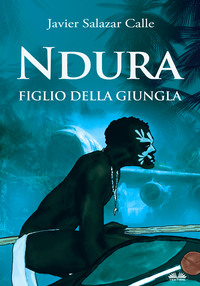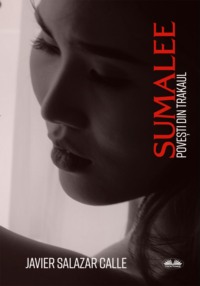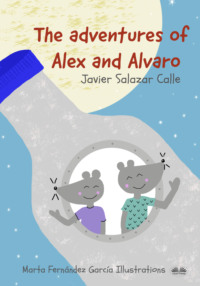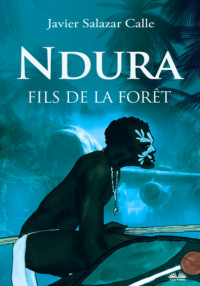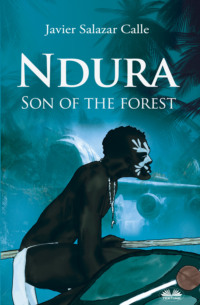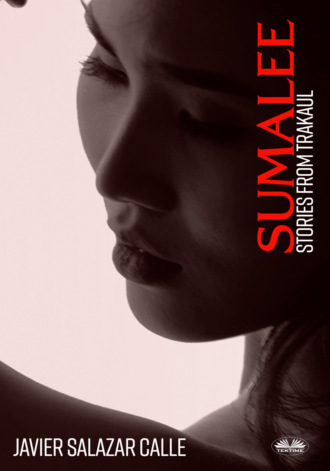
Полная версия
Sumalee
“Yes, and we know something you don’t ...”
“I suppose, it is the fact that Diego is also on the basketball team.”
“Yes. But it’s not that.”
“What is it then?”
“They're together.”
“What! Tere and Diego? Since when?”
“Well, we do not know because they have just told us, but certainly since before coming here, so at least two months.”
“I had never suspected it; although, in fact, if you think about it, yes they are very compatible given the way they are. Good for them! So, what do we do now?”
Josele and Damaso first showed me around the apartment. It had three bedrooms and two bathrooms. I was going to share the bathroom with Josele. Apparently, Damaso insisted on having one for himself and Josele didn’t care. The living room and kitchen were spacious. The house had Wi-Fi and a closed terrace from where you could see the pool. They also told me that the complex had 24-hour security. The man who had intercepted me in the garden was of Chinese origin and was called Nan Shao and was the maintenance person during the day. At night there was a Malay named Datuk Musa. There was also a gym, sauna and squash courts on the ground floor, and a garden with several barbecues, which I had seen a moment ago, where you could have a picnic without leaving the building. Although there was a big TV in the living room, each room had a small one as well as air conditioning, a desk with a chair and a large closet. I didn’t know if the rest of the people in this country identical houses have, but the standard of living here looked amazing. We had two shopping centres within twenty minutes’ walk; with all kinds of restaurants, food and clothing shops, banks, and places to have fun. Wow, our location was perfect.
They also told me about transportation in the city. The subway was called MRT and it had four lines across Singapore from North to South and from East to West. There were also buses and the use of taxi was common, as it was quite cheap. The company had given me a mixed transport card that I could use for both the MRT and the buses. Our company offices were by the Singapore River estuary and close to a large urban park called Fort Canning Park. We could get there by bus. There was a direct line than in less than forty minutes got us to the office.
Working hours were in spurts, like everywhere else. The normal thing in Singapore was to work forty-four hours a week and to have fourteen days of vacation, although us, fortunately, kept the holidays from Spain. The work culture in Singapore was completely different than that of Spain. I don't think that in Spain we would be able to have a forty-four-hour work week and only two weeks of vacation.
Josele gave me a bag with a box inside.
“What is this?”
“A gift from the company. It's your corporate phone for Singapore. Inside you’ll find the phone, the SIM card, and the instructions to connect to all the apps in the company, although, in reality, the only useful one is the email. Monday at work they'll give you your laptop.”
“OK, thank you very much. Later you can explain to me the tariffs and calls to Spain. What about eating? How do you do it? From the menu? In restaurants like in Spain?”
“Well, there are a lot of options,” Josele replied. “It's very rare to find people eating in restaurants because they're so expensive. The norm here is to eat in the canteens of the office building, in the hawker centres, which are kitchen groups with a small counter that share an eating area or in the coffee shops which are like the hawkers, but more expensive and beautiful...”
“And with air conditioning!” Damaso interrupted. “It's where we usually eat.”
“Yes, yes, and with air conditioning,” Josele continued. “Because Damaso can’t take the heat and humidity. In any of these places you can both eat and buy food to go. That depends on everyone and whether there is room to sit, because sometimes there are no sits due to the large number of people there. Also, quite crowded are the fast-food restaurants type Burger King, McDonald's or other Asian food chains that don’t exist in Spain. There are also people who bring their own food, but it's very rare to see Westerners doing that. People from Bangladesh or the Philippines do it usually because they like to eat their traditional food and cook it themselves...”
“Good, good,” I cut him off laughing. “I've only asked where you usually eat, not to give me a report on the Singapore society and their eating habits. What a detailed response. It gave me time to set up the phone. Wait a minute, I'm going to call my mother.”
“Say hello from us.” They both said at the same time.
They knew her from when we worked together in Madrid and one day they came for dinner. My mother is an excellent cook. She become passionate about Spanish food and loved to have guests. She had had a stormy youth, so to speak, and was delighted to welcome new friends who, at first glance, seemed like good people; nothing to do with the unrecommended friendships of my adolescence. I took advantage of the company phone to call to tell her that I was all settled and that I was again with my soul friends. She was very glad I wasn't alone and that I knew people here. She sent them both many kisses. I promised to call and talk more in a few days. When I hung up, I kept asking about things I was interested in knowing about the place.
“And, to entertain yourself, what do you do around here? I don't need you to tell me everything there is to know about the city today, OK, Josele? You must have some fun, too, anything worth mentioning?”
“A lot of things,” Damaso replied. “In Singapore you're not going to get bored, that's for sure. There are all kinds of activities: from amazing flight simulators, horse racing, casinos, amusement parks, hiking trails, museums, shopping malls and, of course, hundreds of pubs and clubs where you can go out and meet people, especially a girl after what Cristina did to you.” My face showed how much I agreed with the latter. I felt like getting back to my crazy times, when what mattered was to end up with a girl no matter who. “Close to work, on the other side of the park, is one of the main strips. A street called Mohamed Sultan Road which is full of clubs and discos. Twenty minutes’ walk. And there's also golf across Marina Bay, of course!”
“I was wondering when you were gonna mention golf. I'm sure you looked into it before you even got here. How to become a member of a golf club around here and where to buy bread in the mornings.” I laughed.
“Do you have any idea what it feels like to shoot a hole in one? Neither do I, but I keep trying.”
“You know him so well David,” Josele said laughing. “As soon as he arrived, he asked the taxi driver on his way from the airport. And once a year they have Formula 1 races, of course. I think it's in September and we were told that it's amazing, because they race around the city at night; so, if we get a chance we should go, even if you don't like races very much, because the atmosphere alone I think it’s worth it.”
“But how long have you been here? You had time to do all these things?”
“No, man,” Josele laughed. The bars yes, of course; but the rest of the things we were told about by colleagues who have been here longer. Now that you're here, I'm sure we'll move more.”
“Man, I also hope to get out a little, too. Especially if it's in good company.”
“Do you mean us or some pretty girl?”
We all laughed hard. It was clear that the entire time they were in the United States we had not lost the complicity we always had in our projects together in Spain. Especially with Josele.
Good times were on the way.
Singapore 3
Next day we went out together for a walk around town. I really wanted to see the atmosphere of the country.
As I wanted to feel useful, I took the garbage bags to throw them away, but Josele intercepted me at the door.
“Where are you going with the garbage?”
“To throw it away. I saw a container out there.”
“My God, we have to explain everything to you. Here there are garbage treatment facilities on every block. You throw the trash down the kitchen chute, under the microwave, and it goes where it’s supposed to go. Like the pneumatic waste in Spain.”
“Interesting... and those on the main floors?”
“They leave it at the service door, and it gets picked up by the cleaning staff. No one takes their trash to the dumpster.”
“And they recycle?”
“There are containers for recycling if you want, but almost no one does it.”
“I see. All the trash down the kitchen chute.”
I threw both bags, and we went out. We started with our neighbourhood, Tanglin. The Singaporeans I saw on the street seemed mostly of eastern origin, Chinese, especially, although there were also many Indians and quite a few whose origin I could not identify.
“They are Malaysian,” clarified Josele. “Here people are quieter and more closed off than the Europeans. They also have very strict laws. There are countless prohibitions. Some can be shocking to us, and if you fail to follow them, you will be punished without hesitation. Everyone learns fast to be respectful, the easy way or the hard way.”
“I like that.”
“We already knew that. With how rigid you are....”
It was true that I was, but it hadn't always been that way.
We went to the right, leaving behind a pedestrian walkway covered with plants full of purple flowers. After a short while we arrived at a subway station. The type of construction changed, and single-family houses appeared, as if it were an area of semi-detached houses, but each different from the other, both in materials and design. A little further there was a junction with another important street called Bukit Timah which was parallel to a stream and had an elevated bridge.
“On the left is the mall we told you about, Coronation Shopping Plaza,” Josele said. “On the right the botanical gardens.”
“Let´s go right then, we will have plenty of time to see shops,” I replied.
We continued until we reached the main entrance of the botanical park or at least one of the entrances. None of them knew how many there were. I read out of curiosity the information to enter. It was opened from five in the morning to twelve at night every day of the year! In addition, it was free except for the orchids area. That was definitely good public service.
“Why don't we go in?” I said trying to persuade Josele and Damaso to go in and have a look.
“We have plenty of time to see things more thoroughly. For your first day it would be better to get familiar with the rest of the city. Besides, Josele already visited the gardens,” Damaso said.
“Is it true?”
“Of course,” Josele replied immediately. “Make no mistake. I might like to take cool pictures of flowers, but there was more to it. I came on a date with a Japanese woman that was really hot, and I thought bringing her here was going to lead to a sure success. And it sure was.” He winked at us and we laughed.
Truth was that he was absolutely right. There was plenty of time to see everything, so I gave in without complaining too much.
“Look!” Damaso shouted. The bus is coming, we could go see Little India, the Indian quarter of the city.
Josele and I thought it was a good idea and in thirty minutes we were getting off the bus in a whole different neighbourhood. There the demographic distribution took a total turn, with the majority being Indian (or Bangladeshi, because the truth is that I was incapable of differentiating them). The first thing that struck me was that in a park there were hundreds of them sitting on the ground, in small groups, chatting with each other. My friends told me that it was what they did every Sunday. It was their meeting point to talk about what had happened during the week. That said, there was not one single woman. Only men. Interesting. Was it because of their customs, machismo or women were meeting somewhere else? We kept walking until we arrived at a church where a group of Foochow Methodist were praying at the entrance, which surprised me considering we were in an Indian area and one expects to see Hindu temples. This demonstrated the uniqueness of this place. We also saw restaurants, these yes, Indian and, finally, we arrived at the Mustafa Centre. It was a fairly large shopping mall that was open 24 hours. Across from it there were two-storey houses, majority of them had restaurants, jewellery stores and Hindi schools. There was also a temple called Arya Samaj. This one did look Hindu, but I wasn't sure. The entrance had a poster with two men: one bearded with a kind look and the other with a turban and a saint like halo. At both ends of the street you could see the city's skyscrapers, which contrasted with this low area of houses. Everything was very different from what I knew.
Josele, who had always been more curious about things and who, in addition, was fond of photography and was always looking for unique locations to unleash his vocation, explained to me that these houses were called shop houses. They were old buildings with the upper floor intended as residence and the lower one for the family business, usually workshops, restaurants, or shops. Apparently, they were highly sought after, not only for their historical value or their beauty, but also for their exceptional location. They rented for three thousand five hundred up to almost twenty thousand dollars a month, depending on their location and condition; and their sale price was several million Singapore dollars. A fortune.
We went into the mall to see what kind of stores they had. It was over two blocks and on the first floor it had a glass walkway above the street that linked the two buildings. Inside there were shops of all kinds: a supermarket, a pharmacy, cosmetics, sportswear, electronics, post office and jewellery stores. They also had visa services for Indians and Malays and a currency exchange office. One euro amounted to almost one and half Singapore dollar. I had gotten a slightly better rate in Spain.
At lunchtime we ate at one of the many Indian restaurants in the area. One specialized in northern Indian food. Like I could tell the difference between the food from the north and that from the south! I went along with the advice of Josele and Damaso and we ordered several dishes to share. For starter Aloo Gobi, which were spiced potatoes with cauliflower, and Chaat, a type of very crispy dumplings with various spicy fillings. Then we shared Chana masala, which looked similar to a Spanish dish but had a completely different flavour due to the spices, a rice with lentils called Khichdi and chicken Tandori, a roast chicken with yogurt and spices that gave it a bright red colour. All accompanied by a bread called Kulcha and for dessert some rose petals with sugar called Gulqand. Lots of exotic names and food that sometimes was a bit too spicy. I could eat it once in a while but every day I would end up fed up with so much spice. Besides, I wasn't quite sure that my stomach could take it on a daily basis since it was used to a different kind of food. What I was sure of was that I wouldn't remember the name of any of the dishes.
I asked about the typical Singaporean food and I was told it was also very spicy, but to not worry about it because there were all kinds of restaurants to choose from. I liked spicy food, but only once in a while and not too spicy. I had a friend who liked hot food, but to me it seemed that with the mouth on fire you couldn't really taste the flavour of the food. Anyway, there was also a lot of Chinese influence in their food, which I liked a lot better. I had to try it soon.
After lunch we returned home. I had to finish unpacking and I wanted to get some rest. I didn't know if it was jet lag or what, but I was exhausted. Anyway, I had received so much information since I arrived in the city and I really wanted a little peace and to plan for the next day and to get into some routine.
We spent the rest of the afternoon at home, watching some English news on TV and chatting about the things we would do in the coming weeks.
We had dinner from what we had in the fridge and shortly I went to sleep. Next day I was starting my new work adventure.
Thailand 13
My thoughts about my stay in Singapore were interrupted when I felt that someone was watching me. I stopped the series of punches I was doing and looked at the cell door. A man named Channarong was looking at me weird. I had heard of him from other prisoners that talked about him, always with respect. His name, as I had been told, meant something like "fighting to win," which was exactly what I was preparing for. I wasn't quite sure why people respected him. I didn't know if he were a member of a mob, a famous fighter or the son of a rich businessman who could pay someone to kill you if you bothered his offspring. The thing was, he had been staring at me quietly for who knows how long. I tried to pretend by stretching my arms and making some stupid moves trying to imitate what in my head would be Tai Chi. I was sure it was too late and that Channarong could tell that I was training in martial arts. He would have to be stupid to believe that what I was doing was Tai Chi.
I felt ridiculous trying to throw him off, so I stopped and stared at him without saying anything. Channarong fixed his eyes in mine and examined me closely. His face was completely blank. It was impossible to know what he was thinking. After a few minutes, which seemed like hours, he took a few steps toward me. Instinctively, I stepped back and raised my arms to defend myself. I was used to all who came near to hit me although this time it was a bit soon considering the last beating was just an hour ago.
Channarong came within twenty inches of me and looked at me funny. He raised his hand and I shrugged waiting to take the first hit, but instead, what he did was grab my arm and stretch it imitating a punch.
“Not like this,” he said in a pretty decent English as he shook his head. “Not like that. No, no, no.”
He grabbed my arm and stretched it again, this time with more force. Forcing me to turn on my hip so I don't fall.
“Move hip, hit hip. Move hip, hit hip. Do you know what to call this prison? The Big Tiger because they say, “it hunts and eats.” Want to be prey or hunter?”
He kept repeating that phrase as if it were a mantra, over and over again, as he moved my arm and patted me on the waist. He was correcting my movement! Not only did he not want to hit me, he was teaching me to hit the right way. He let go of my arm and encouraged me with a hand gesture to keep trying. I threw a new series of punches using my hip in the punches as Channarong corrected my movements.
“Muay Thai's tenth lesson,” he told me very serious after a while-training and exercising regularly. “You continue, I watch. Very good. Muay Thai are eight-armed warriors. Fists, elbows, knees, and feet. Train everything, look for balance.”
So, he had been watching me training without me knowing. It was clear that I wasn't hiding it as well as I thought. Just a minute! Did he say tenth lesson? What about the previous nine? Anyway, I did another series of punches focusing on doing everything perfect, as he taught me, paying attention to every detail of the movement, trying to not allow the pain in my body to influence me. I turned satisfied to see what he thought, but Channarong had already left. He disappeared the same way he showed up. Quietly and without warning. It left me puzzled. Why was he helping me, why did he leave without giving me the opportunity to thank him? I didn’t know the answers or had the chance to get them at the time, so I did what was expected of someone practical like me. I kept training my punches, using my hip to hit harder. Trying to ignore the pain caused by every move in the places where I was hit in the beating.
Next day I looked for Channarong to thank him, but I couldn't find him. I also did not go searching the entire complex, because with my background it was better not to be seen too much to avoid problems. When you were used as a punching bag, the wisest thing to do was not to be found. I kept training my punches and the rest of the moves. I would have loved it if he decides to be my mentor as Mr. Miyagi in the Karate Kid or as Angel, the boxing teacher who taught me what respect for others and myself was, but I doubted that this so loved man and with whom I had never talked had any interest in me. On the other hand, he had helped me, hadn't he? In any case no one ever spoke to me; so, I felt grateful at least for that.
A couple of days later I met Channarong in the cafeteria line. I approached to thank him for his interest, but he sent me away from him with rapid hand movements and a snake-like sound.
“Lesson number two” - screamed as I walked away confused, “to make oneself useful to others.”
While eating, I tried to unravel the meaning of those words. Did he want me to help people in the prison, did he want me to think of myself? Eastern people sometimes liked to talk like this. Was it not easier to say what you meant? Make oneself useful to others... to defend others from thugs instead of myself? Cheap philosophy. With how useful it is to say things directly. I looked toward Channarong and he was pointing toward my table and telling something to his teammates, who were laughing hard. I didn’t know what to think anymore. I was completely lost. Maybe he was just laughing at me, but then why help me?
I noticed that the group that had it in for me was coming into the cafeteria, so I got up, left the tray with everything I had left to eat and exited quickly. As my mother would say, “Whoever avoids the occasion avoids danger.” That was useful advice. And... of course.
I went to the cell to train. It's not that training after eating was a good idea, but it was one of the few times when no one was there, and I had to take advantage of it. I did what needed to be done. What was necessary. I started my workout routine. Stretches, push ups, sit ups ... Working every part of the body independently and together. Then I continued with the blows in the air, first punches, then kicks, finally, knees and elbows like I saw the prisoners training in the yard. As Channarong said, the eight-armed warrior. As no one spoke to me for fear of also becoming the target of those who beat me, I had a lot of time to think. In one of my daily reflections, I had considered that, apart from building up my body and trying to improve my technique and my speed, I should also condition my body to blows. Which is why I added to my routine a series of punches with fists, elbows, tibia and back of the hand to the wall covering myself first with pieces of fabric and starting gently. Sometimes I exaggerated with the blows and I had some part of my body inflamed for a couple of days, but I considered it necessary to teach my body to overcome pain. When I was messing up in training, I only had to remember one of my antagonistic enemies from youth or any of the beatings received; me on the ground being the target of kicks and punches, crouched like an animal and waiting for it to all to end. Like this I increased the momentum of my blows, the effort of training drawing forces from fury, fear, and the intensity of despair.
I also had to greatly increase my stamina, so I spent my time running non-stop in the yard; which my stalkers celebrated with taunts and laughter because they must have thought I was training to run away from them. At the same time, it served me as therapy. I didn't always like running. Shortly after I started boxing in Madrid, I had to add running routines to gain endurance and to be able to stand up through a full fight. It was exhausting, but necessary. In the end, running half an hour every day turned out to be a forged balm to indoctrinate my body and mind.
Soon it would be my time and the situation would change completely. Soon that laughter would turn into screams. Screams of pain. Or at least that’s what I wanted to believe. It was that or death.


